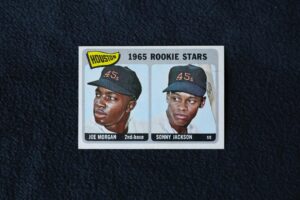Collecting is a deeply ingrained human behavior that transcends cultures, generations, and interests. Whether it’s stamps, coins, artwork, or in our case, baseball cards, the act of collecting goes beyond mere acquisition—it’s a reflection of our desires, aspirations, and emotions. In this article, we’ll explore the fascinating psychology behind collecting and how understanding the collector’s mindset can shed light on the process of selling baseball cards.
The Urge to Collect: Unraveling the Mysteries of Human Behavior
Collecting is rooted in our innate desire to organize, categorize, and possess objects of significance. Psychologists suggest that collecting satisfies fundamental human needs, such as the quest for knowledge, the pursuit of mastery, and the expression of identity. Whether consciously or subconsciously, collectors are driven by many motivations, ranging from nostalgia and sentimentality to the thrill of the hunt and the pursuit of perfection.
The Role of Emotions: Connecting with Objects on a Deeper Level
At the heart of collecting lies an emotional connection between the collector and the objects of their affection. Whether it’s a cherished childhood toy, a rare artifact, or a prized baseball card, these objects evoke joy, nostalgia, and fulfillment. Psychologists argue that collecting provides comfort, security, and belonging as collectors surround themselves with items that bring them happiness and meaning.
The Quest for Completion: Seeking Wholeness in an Incomplete World
For many collectors, the pursuit of completeness drives their passion for collecting. Whether completing a set of baseball cards, filling in gaps in a collection, or acquiring elusive treasures, the quest for completion provides a sense of purpose and satisfaction. Psychologists suggest that completing a collection symbolizes mastery and control over one’s environment, offering a sense of fulfillment and accomplishment.
The Thrill of Discovery: Finding Joy in the Hunt
Beyond possession, collectors derive immense pleasure from the thrill of discovery. Whether stumbling upon a rare find at a flea market, uncovering a hidden gem in an attic, or outbidding competitors at an auction, the thrill of the hunt fuels collectors’ passion for acquiring new additions to their collections. Psychologists argue that the anticipation and excitement of finding something unexpected trigger the brain’s reward centers, reinforcing the collector’s behavior.
The Power of Community: Finding Connection in Shared Interests
Collecting is often a social activity, fostering connections and camaraderie among like-minded individuals. Whether attending collector’s conventions, participating in online forums, or joining local clubs, collectors seek community and companionship in their shared interests. Psychologists suggest that belonging to a community of collectors provides validation, support, and encouragement, enhancing the overall collecting experience.
In conclusion, the psychology of collecting offers valuable insights into the complex motivations and behaviors that drive collectors’ passion for acquiring and preserving objects of significance. By understanding the collector’s mindset—the emotional attachment to objects, the quest for completeness, the thrill of discovery, or the sense of community—, we can gain a deeper appreciation for the joys and challenges of selling baseball cards. Whether you’re a collector looking to part with a prized possession or a seller seeking to understand your target audience, acknowledging the psychological factors can inform your approach and enhance your selling experience.


